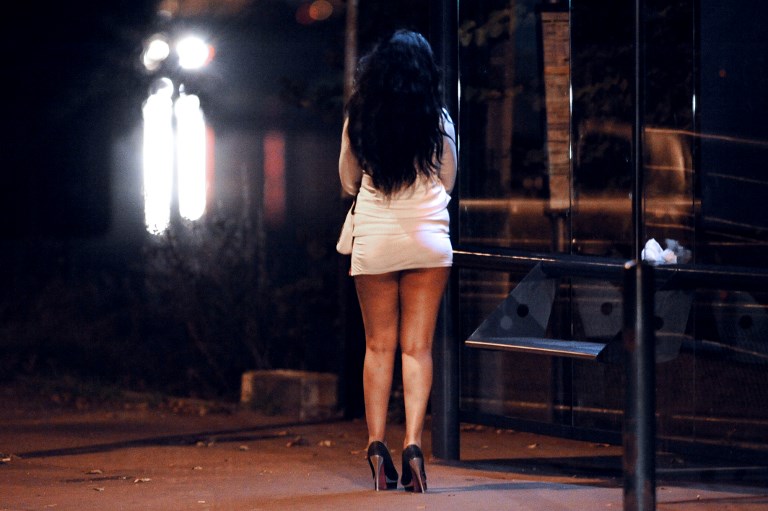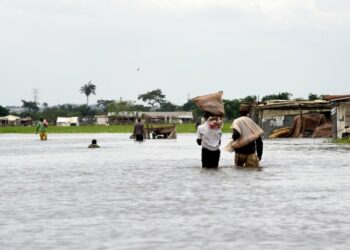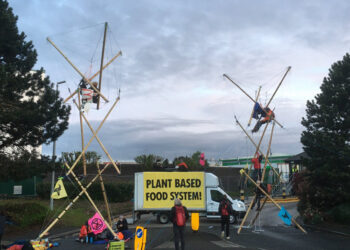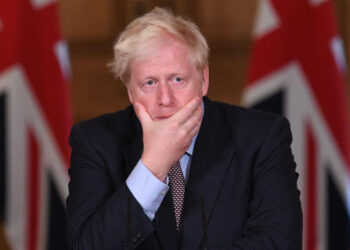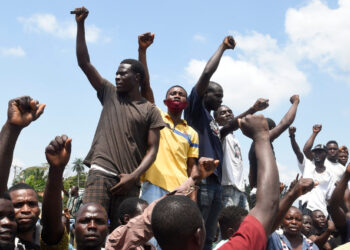My cousin Tappi (not her real name) left Nigeria when she was 27. I was 13 at the time. Like most kids my age then in Nigeria, I was proud that a close relative was going to the United States to get married and become an American – at least, so it seemed.
I was reminded of Tappi last week when I saw media reports about the U.K. Home Office official policy and information note on the trafficking of women from Nigeria. The note, which is used by Home Office officials to decide on asylum and human rights claims, specified that trafficked women from Nigeria can return home “wealthy from prostitution,” “held in high regard,” and “not subject to negative social attitudes” on their return. For me, it was deeply personal.
Several years had passed after Tappi left for America and no one had heard anything from her. No letters. No wedding or family pictures. I was in my Sophomore year at university when Tappi finally wrote home. Things had not gone exactly the way she had hoped for. The man she had left with had “used” her. There was no marriage, no children, no husband, no job, nothing. We were all heartbroken.
It was several years later that I got to understand that my cousin had been a victim of trafficking. It has been one of those very closely guarded family secrets, only whispered between a few of the older women. It took Tappi over 15 years to sort out her life in the United States, to obtain legal status and find a decent job. It was only then that she was able to visit home.
Religion and Prostitution in Nigeria
Nigeria was created by the British, just before the outbreak of the First World War, when they brought the mainly Muslim Northern Nigeria Protectorate with the mainly Christian Southern Nigeria Protectorate together within common boundaries in 1914. Both regions, made up of diverse peoples and cultures, had little in common other than a shared colonizer and a deep sense of religiosity.
Today, close to 60 years after independence, Nigeria is a violently divided country, yet morally incredibly conservative and heavily religious. Religious identities define every aspect of social relationships and politics.
Doubtless, religion has often been used as a cover-up for various exploitative practices, but that does not in any way diminish the social role and even utility of religious beliefs and religiosity in Nigeria. In this highly religious society, prostitution is a mortal sin. Nigerians, both Muslims and Christians, would agree.
Saving Face and Shaming Culture
Furthermore, Nigeria has a high saving face and shaming culture. You learn early never to bring shame to your family – through poor grades at school (even if it is Sunday school) or by associating with the wrong crowd. But nothing brings as much shame and reproach as sexual promiscuity, not to talk of prostitution.
To have been a known prostitute or be involved in sexual promiscuity, no matter your wealth, is a shame tied to your entire family for a very long time, with far-reaching effects for your siblings and relatives. It will almost certainly ruin the chances of your siblings, particularly females, of getting married. If a family is not “well-spoken of,” it is difficult for single women to find a husband.
In many of Nigeria’s cultures, families send secret “agents” or “spies” to the communities of would-be brides and grooms to investigate the reputation of their immediate and extended families. Do they have people that have suffered from mental illness? Do they have lots of barren women or impotent men? Are their women promiscuous? Are there cases of children outside marriage? And of course, are there any known cases of prostitution, divorce, or marital infidelity in the family? A yes to any of these questions will almost certainly throw spanners into the wedding works, no matter how much in love the couple may profess to be.
Most Nigerians do their utmost, not just for themselves but more importantly, for the reputation of their immediate and extended families. When I left Nigeria in my late 20s to pursue graduate study in England, my dad’s words rang in my head ceaselessly: “remember where you are from,” “you must not bring us shame.” And of course, there were lots of verses from the Bible. You dare not return home with a soiled reputation.
UK Note on Trafficking of Nigerian Women
The U.K. Home Office and those that advise them on Nigeria are at best frighteningly ignorant of the country’s cultural nuances. No one throws a red-carpet for a deported prostitute, no matter how much wealth they’ve returned with.
For the avoidance of doubt, there is no wealth from forced prostitution. Rather, there is trauma and shame. There is no high regard for prostitutes. Rather, there is scorn and disdain.
The women caught up in this quagmire are hardly the so-called “Madams” or procurers. It is the exploited ones, the modern-day slaves, who must have sex with as many men a night as possible to make enough money to pay off their Madams and the endless chain of prostitution entrepreneurs and go-betweens.
Since these women have to live under the immigration and security radars, they have to provide for their health care, including costs of medicine when they inevitably get ill.
This year, Josephine Iyamu was jailed for trafficking Nigerian women and forcing them into sex work. In this interview, one of her victims bravely recounts her experience pic.twitter.com/U7nmzekPm1
— National Crime Agency (NCA) (@NCA_UK) September 29, 2018
The policy note reveals a lot more than it says and it isn’t just a faux pas. It reveals a chilling dehumanization and fetishization of the black female body at the policy level. The humanity of these suffering and traumatized women is totally invisible to those whose job it is to protect them. All that is seen of these poor Nigerian women is their sexual bodies and the perceived “wealth” those bodies can make.
The claim that these trafficked and traumatized African women have somehow profited from their own abuse and slavery and will be given a hero’s welcome on their forced return home is morally reprehensible. Those behind it should be called out for what they are.
Disclaimer: The views and opinions expressed here are those of the author and do not necessarily reflect the editorial position of The Globe Post.

